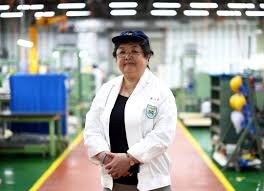The ongoing U.S. trade tensions have significantly affected the global automotive supply chain, and the repercussions have been felt across Japan. In a dramatic escalation, Japan auto tariffs imposed by the Trump administration have cast a long shadow over auto-parts suppliers linked to major automotive giants such as Toyota, Nissan, and Ford. The impact has been particularly severe on small and mid-sized manufacturers that supply niche components critical to vehicle production.
Traditional Supply Chains Disrupted by Japan Auto Tariffs
The tariff crossfire has brought unprecedented challenges to companies operating in Japan’s tightly woven automotive supply web. It has been observed that suppliers of companies like Toyota, Nissan, and Ford have been directly affected by the sweeping U.S. tariffs. Among the most impacted is the 78-year-old family-run business managed by Hiroko Suzuki, whose diversification strategy has been undermined by shifting trade dynamics.
Initially, Suzuki’s father had strategically pivoted the company toward specialized niche products in a bid to shield the business from trade instability. The intent was to future-proof operations against the kind of economic shocks that are now being triggered by geopolitical strife. Unfortunately, the expanded tariffs—now encompassing not only automobiles but also a wide range of parts—have thrown those plans into uncertainty.
Tariffs Push Innovation into a Corner
A diversification move into medical device manufacturing had been initiated by Hiroko Suzuki in an attempt to reduce reliance on traditional automotive components. However, the medical device segment also relies on imported materials and advanced machinery, many of which are now subject to heavy tariffs. As a result, production costs have surged while profit margins have been squeezed.
The tariffs, which include a steep 25% levy on automobiles and associated parts, have made it increasingly difficult for smaller Japanese manufacturers to compete globally. Export costs have been inflated, and many companies have been forced to pass on the burden to consumers or absorb losses internally. The once-thriving network that supported Japanese automotive exports has been thrown into disarray.
A National Crisis in the Making
These developments have not gone unnoticed by Japan’s political leadership. Prime Minister Shigeru Ishiba has publicly labeled the tariff situation a “national crisis,” emphasizing the profound threat it poses to the country’s economy. As the fourth-largest economy in the world, Japan’s industrial backbone has traditionally leaned on the automotive sector. Disruption at this scale is therefore viewed as a structural risk to national economic health.
In an urgent diplomatic effort, Ryosei Akazawa, Japan’s top trade negotiator, was dispatched to Washington for a third round of high-stakes talks. These discussions are aimed at de-escalating the trade standoff and securing exemptions or relaxed tariff conditions for Japanese manufacturers. However, optimism has been dampened by the unpredictability of U.S. trade policy under the Trump administration.
Cross-Industry Impact Expands
While the most visible damage has been incurred by auto-parts suppliers, ripple effects have extended across multiple industries. Electronics, metallurgy, logistics, and high-tech manufacturing have all been adversely affected. Components such as semiconductors, precision sensors, and heat-resistant alloys—often sourced globally and assembled domestically—are now subject to complicated tariff classifications.
These tariffs have introduced new layers of bureaucracy and cost. Customs documentation has become more rigorous, and delays in shipping have become routine. Contracts with overseas buyers are being renegotiated, and new sourcing strategies are being explored to mitigate exposure. However, these adjustments are not without their own risks and expenses.
Job Security Threatened
In regions of Japan heavily dependent on auto-parts manufacturing, employment security has been threatened. Jobs are increasingly being outsourced to facilities in Southeast Asia, where tariff exposure is lower and production costs are more manageable. As a result, rural economies that once thrived on dependable export orders have entered a phase of uncertainty.
Union leaders and labor activists have voiced concern that the new tariffs could erode decades of industrial stability. Calls have been made for the government to implement domestic stimulus measures, such as tax breaks, subsidies, and export incentives, to shield vulnerable manufacturers and safeguard employment.
Strategic Shifts Underway
In response to the instability, Japanese firms are being compelled to reevaluate long-term strategies. Joint ventures with U.S.-based companies are being reconsidered. Many suppliers are beginning to explore markets in Southeast Asia and Europe as alternative outlets. While diversification is essential, it requires significant capital and time, two resources currently in short supply for most small and medium enterprises.
Looking Ahead
The broader geopolitical consequences of the tariff crossfire are still unfolding. Global supply chains are being redrawn, and Japan finds itself at the center of a shifting economic landscape. Despite these challenges, efforts are being made to adapt and survive. Innovation, diplomacy, and resilience will be key to weathering the storm.
The story of Hiroko Suzuki and her family business illustrates the larger narrative faced by countless Japanese suppliers. By attempting to adapt and evolve, they exemplify the spirit of Japan’s manufacturing legacy. However, unless trade tensions are eased, this legacy may find itself irreparably altered.


